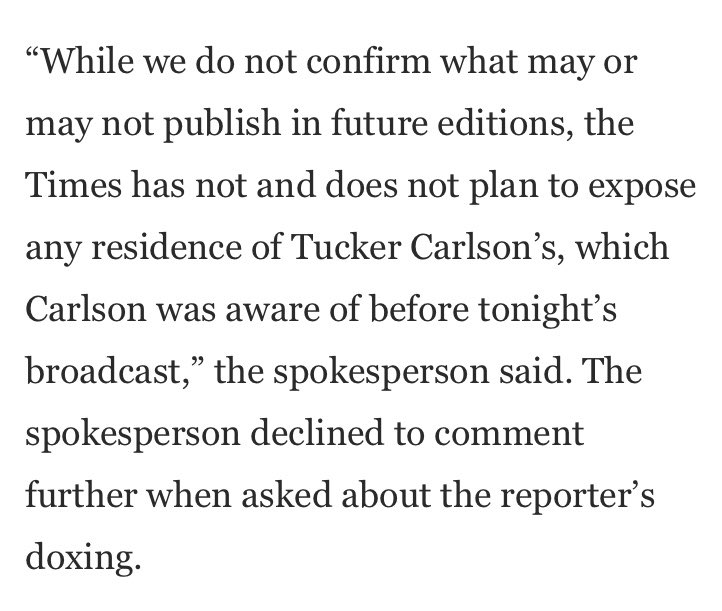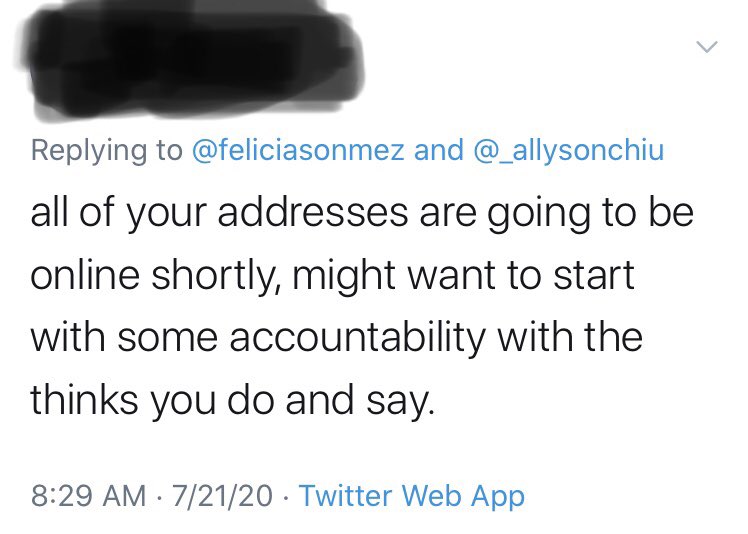Tucker Carlson claimed the New York Times planned to expose his address. Then his fans doxed the reporter. Via @_allysonchiu: https://www.washingtonpost.com/nation/2020/07/21/tucker-carlson-new-york-times/
According to @_allysonchiu’s reporting, the NYT declined to comment when asked about Twitter users doxing Carpenter. I sure hope NYT is offering him protection; he’s become a target because of the work he was doing for the paper as a freelancer.
In general, news organizations need to do a better job of publicly defending their reporters and quickly giving them the security they need when they’re being threatened online. Journalists like Carpenter, @KarenAttiah and others have been threatened in recent weeks.
When a journalist is facing threats and harassment, those actions can spill over from online to offline very easily. That person’s security is paramount. Scroll through Twitter this a.m. and you’ll still find tons of posts purporting to list Carpenter’s phone numbers and address.
Most large news organizations have social media teams that have contacts at Twitter to whom they can flag threatening content to help ensure it gets taken down quickly. I hope that’s being done in Carpenter’s case; it should be the norm any time a journalist is threatened.
Another thing that should be the norm: Public statements by news organizations in defense of employees who are threatened or doxed. Often Guilds do this in newsrooms that are unionized, but that’s not enough. Newsroom leaders shouldn’t stay silent when their staff are at risk.
There’s been a lot of soul-searching recently about how our industry can do better. This one is simple and has more impact than anything I can think of: When your reporter’s life is on the line, do you stand up for them, or do you leave them to fend for themselves?
I mean, this is the environment we’re in these days: Even tweeting about journalists getting doxed prompts vague threats like this one.
Women and journalists of color face the bulk of threats online, but freelancers are in a precarious position as well. News organizations are often happy to take their work but are loathe to accept responsibility for defending them from any threats they may face because of it.
I’m tired of seeing friends and colleagues being left to fend for themselves every time bad actors whip up online harassment campaigns that result in doxing & death threats. Some top editors say those on the receiving end should just leave Twitter. That doesn’t solve the problem.
Anyway, this issue is too big to be discussed in one Twitter thread, but I’ll sign off with this: The Carlson incident shows how *any* journalist can easily become the target of an online harassment campaign. Ignoring it doesn’t make it go away. What are news orgs going to do?

 Read on Twitter
Read on Twitter



